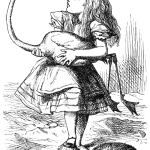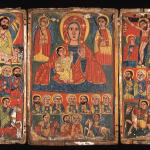I would assert quite simply that the final test of the civilizing process that is liberal education is to be found more accurately in the quality of choices one makes during life than in evidence of purely intellectual attainments. The specific purpose of such a liberal education should be to enable persons, to the extent that formal education can do so, to make sound human decisions affecting both personal lives and social policies.
Now that the academic year is upon us, and students have returned to ivy-covered building with gothic spires, it is important to ask a fundamental question: why?
The cynical answer will be some iteration of the following: to get a job. To enter the middle class. To get ahead. To get rich.
Joe College’s answer will be something like this: to party! (We will for the moment pass on commenting on the almost inherent conflation of partying and misogyny.)
The parent’s answer will be something rather different: maybe to help a son or daughter grow, to learn a profession, to make friends and maybe even meet a future spouse.
Many of us that live and work in Catholic universities, though, often point to more idealized answers which, I hope, are not for that reason untrue. I cannot speak for those in the various professions, but my experience in the world of the liberal arts suggests at least a general theme to which we hope our students aspire.
We hope they become free.
Free from what? My short list:
- Popular opinion
- Childishness
- The myopia of the “now”
- Slavish dependence on technology for happiness
- Their own undisciplined desires
- Approval of others
- The hope for wealth
Free for what? Another short list:
- Giving of themselves to others
- Authentic friendship
- Civic responsibility
- Self-understanding
- Indifference toward money
- Understanding of the world and history
In a word, what Catholic universities aim to encourage in students is discernment. This word, usually meaning “careful choosing,” is a rich theological term that suggests the human task of living. In his Spiritual Exercises, Saint Ignatius of Loyola describes “rules for the discernment of spirits,” ways of learning how to judge the different movements of feeling, emotion, and desire that prompt choice and action. He observes, for example, that often simple desires for pleasure can get in the way of discerning what God is doing in one’s life.
A good Catholic university will be a discerning university. It will help students understand themselves, the world, their communities, the difference between right and wrong, the pressures affecting societies, the good use of resources, and so on. Yes, at the end they will gain skills appropriate for professions. Yes, they will have great times along the way. Yes, they will make relationships that they carry for the rest of their lives. But in the end, they will (I hope) discover that in all of those experiences are hints of the good that God has created them to do in the world.











